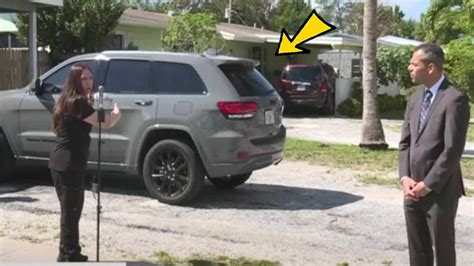
Minnesota Governor Tim Walz issued a terse, six-word rejoinder to Elon Musk following Musk’s criticism of diversity, equity, and inclusion (DEI) initiatives, stating, “Good riddance, go build rockets.” The remark underscores the ongoing tension between the Democratic governor and the controversial tech entrepreneur and owner of X (formerly Twitter).
Governor Walz’s sharp response came after Musk publicly criticized DEI programs, arguing they are discriminatory. Musk’s comments and perceived animosity toward DEI have sparked widespread debate, particularly in states like Minnesota, which have actively promoted such initiatives to address historical disparities and foster inclusivity. The exchange highlights a broader ideological clash over the role of DEI in corporate America and public policy.
The context for this exchange lies in Musk’s history of controversial statements and actions related to social and political issues. Since acquiring Twitter, now X, Musk has faced criticism for policy changes that critics say have amplified hate speech and misinformation. His stance on DEI aligns with a broader narrative of challenging what he views as “woke” ideology, a term frequently used by conservatives to describe progressive social justice activism.
Walz, on the other hand, has championed DEI policies as essential for creating a more equitable and inclusive society in Minnesota. His administration has implemented several programs aimed at promoting diversity in employment, education, and public services. The governor’s direct response to Musk reflects a firm commitment to these values and a willingness to publicly challenge those who oppose them.
The impact of this exchange extends beyond a simple war of words. It symbolizes a deeper divide over the future of corporate responsibility and social justice. Musk’s critique of DEI resonates with a segment of the population that views such initiatives as divisive or reverse discrimination, while Walz’s defense of DEI reflects the views of those who believe these programs are necessary to level the playing field and address systemic inequalities. The political ramifications could influence policy debates and electoral outcomes in Minnesota and across the country.
The economic implications are also noteworthy. Minnesota is actively working to attract and retain businesses that align with its values of inclusivity and social responsibility. Walz’s message to Musk sends a clear signal that Minnesota prioritizes companies that embrace DEI principles and contribute to a more equitable society. This could impact investment decisions and business relocations, as companies increasingly consider the social and political climate of potential locations.
Furthermore, this exchange has ignited a broader conversation about free speech and the responsibilities of tech platforms. Musk’s ownership of X has raised questions about the platform’s content moderation policies and its role in shaping public discourse. Critics argue that Musk’s laissez-faire approach to content moderation has allowed hate speech and misinformation to thrive, while supporters argue that it promotes free speech. The debate over X’s policies has implications for the future of social media and its impact on society.
The long-term consequences of this exchange remain to be seen. However, it is clear that the clash between Walz and Musk represents a significant moment in the ongoing debate over DEI, corporate responsibility, and social justice. The outcome will likely shape the future of policy and business practices in Minnesota and beyond.
Expanded Details and Context:
The initial spark for this confrontation appears rooted in Musk’s increasing vocalization against DEI initiatives across various sectors. Musk has argued that DEI programs often prioritize factors other than merit, leading to inefficiencies and potential discrimination against individuals who might otherwise be more qualified. He has particularly focused on instances where he believes DEI has led to lowered standards or the exclusion of certain demographic groups.
In contrast, Governor Walz has been a staunch advocate for DEI policies within Minnesota’s state government and has encouraged businesses operating within the state to adopt similar frameworks. These initiatives are designed to address historical underrepresentation and create opportunities for individuals from marginalized communities. Minnesota has implemented several programs to promote diversity in hiring, contracting, and education, reflecting a broader commitment to social equity.
The specific trigger for Walz’s “Good riddance” comment likely stems from a series of posts Musk made on X criticizing DEI and related concepts. While Musk’s specific tweets weren’t directly about Minnesota, his broad condemnation of DEI was perceived as a challenge to the values and policies promoted by Walz’s administration. The governor’s response can be interpreted as a defensive stance, protecting the state’s commitment to these initiatives.
This isn’t the first time Musk has waded into political controversies. His acquisition of Twitter and subsequent policy changes have drawn criticism from various groups. Changes such as relaxing content moderation rules and reinstating previously banned accounts have been praised by some as promoting free speech, while others argue they have contributed to the spread of misinformation and hate speech. Musk’s political views and his use of X as a platform to express them have made him a polarizing figure.
Governor Walz’s political background provides additional context to his response. As a Democrat in a state with a strong progressive tradition, Walz has consistently advocated for policies that promote social justice and equality. His commitment to DEI aligns with the values of his constituents and the broader Democratic Party platform. His willingness to directly confront Musk, a high-profile and often controversial figure, demonstrates a strategic approach to defending his administration’s policies.
The economic implications of this exchange are multifaceted. Minnesota has been actively working to attract businesses and talent, emphasizing its commitment to inclusivity and social responsibility. Walz’s message to Musk could be seen as a signal to companies that prioritize DEI that Minnesota is a welcoming and supportive environment. Conversely, it could deter companies that align with Musk’s views on DEI from investing in the state.
The broader debate over DEI in the workplace and society is complex and contentious. Supporters argue that DEI programs are essential for creating a more equitable and inclusive society, addressing historical disparities, and promoting diversity of thought. They argue that these initiatives lead to better outcomes for businesses and communities by fostering innovation and attracting a wider range of talent.
Critics, on the other hand, argue that DEI programs can be discriminatory, leading to reverse discrimination and the lowering of standards. They contend that such initiatives often prioritize factors other than merit, leading to inefficiencies and potentially harming individuals who might otherwise be more qualified. They advocate for a focus on meritocracy, where individuals are judged solely on their skills and qualifications.
The legal landscape surrounding DEI is also evolving. Recent court decisions have challenged the legality of certain affirmative action programs, raising questions about the future of DEI initiatives. This legal uncertainty adds another layer of complexity to the debate and could impact the implementation of DEI policies in the workplace and government.
The impact of this exchange on Minnesota’s political landscape remains to be seen. It could energize supporters of DEI policies and motivate them to become more involved in political activism. Conversely, it could galvanize opposition to DEI and fuel support for candidates who oppose such initiatives. The long-term consequences will depend on how the debate over DEI evolves and how it resonates with voters.
From a global perspective, the exchange between Walz and Musk reflects a broader conversation about the role of business in society. Companies are increasingly expected to take a stand on social and political issues, and their actions are subject to intense scrutiny from consumers, employees, and investors. This trend is likely to continue, as stakeholders demand greater accountability and transparency from businesses.
The future of DEI is uncertain, but it is clear that the debate will continue to be a central topic of discussion in the years to come. The exchange between Walz and Musk serves as a reminder of the deep divisions that exist over this issue and the importance of engaging in constructive dialogue to find common ground. The actions of policymakers, business leaders, and individuals will shape the future of DEI and its impact on society.
The social impact is also significant. The visibility of the exchange elevates the conversation around DEI to a broader audience. For those who support DEI initiatives, Walz’s firm stance is a source of encouragement and validation. For those who oppose them, it reinforces their concerns about perceived overreach and ideological bias. The exchange serves as a touchstone for further discussions within communities, workplaces, and online forums, potentially intensifying existing divisions or fostering a deeper understanding of differing perspectives.
The implications for X, under Musk’s leadership, are also notable. The platform’s stance on content moderation and DEI-related discussions will be closely watched. Any perceived bias, either for or against DEI, could further alienate or galvanize different user groups, potentially impacting the platform’s overall usage and influence. It also puts pressure on X to clarify its own internal DEI policies and practices.
The intersection of technology and social policy is becoming increasingly important. Musk’s influence as a tech leader and his use of social media to express his views highlight the power that individuals with large platforms wield in shaping public opinion. This raises questions about the responsibility of tech leaders to consider the potential impact of their words and actions on society.
Ultimately, the “Walz to Musk” exchange serves as a microcosm of a larger societal debate about values, priorities, and the role of government and business in shaping a more just and equitable world. It underscores the complexity of these issues and the need for thoughtful and nuanced discussions to navigate them effectively. The ripple effects of this exchange are likely to be felt for some time to come, shaping policy decisions, business practices, and social attitudes in Minnesota and beyond.
The incident also brings into focus the strategies employed by political figures when engaging with high-profile individuals or companies. Walz’s choice to respond directly and concisely indicates a calculated decision to take a stand and assert his administration’s values without engaging in prolonged debate. This approach can be seen as a way to quickly address the issue and avoid further escalation while sending a clear message to his constituents and the broader public.
Another crucial aspect to consider is the potential impact on Minnesota’s workforce. The state’s commitment to DEI initiatives is likely to influence the decisions of job seekers and employees, particularly those from underrepresented groups. Companies that embrace DEI principles may find it easier to attract and retain talent in Minnesota, while those that do not may face challenges in recruiting a diverse workforce.
The exchange also sheds light on the evolving role of social media in political discourse. Platforms like X have become important tools for politicians to communicate directly with the public, bypass traditional media outlets, and respond quickly to emerging issues. However, the use of social media also carries risks, as comments can be easily misinterpreted, taken out of context, or used to fuel controversy.
The historical context of DEI in Minnesota is also important to consider. The state has a long history of promoting civil rights and addressing discrimination, and DEI initiatives are seen as a continuation of these efforts. Understanding this historical context provides a deeper appreciation for the state’s commitment to DEI and the significance of Walz’s response to Musk.
The legal challenges facing DEI programs across the country also add another layer of complexity to the situation. Recent court decisions have raised questions about the legality of certain affirmative action policies and have prompted some organizations to re-evaluate their DEI programs. This legal uncertainty could have implications for Minnesota’s DEI initiatives and could lead to further legal challenges.
The long-term impact of the Walz-Musk exchange will depend on a variety of factors, including the evolution of the DEI debate, the outcome of legal challenges to affirmative action policies, and the political climate in Minnesota and across the country. However, it is clear that the exchange has raised important questions about values, priorities, and the role of government and business in shaping a more just and equitable world.
FAQ Section
1. What prompted Governor Walz’s “Good riddance, go build rockets” comment to Elon Musk?
Governor Walz’s comment was a direct response to Elon Musk’s public criticism of Diversity, Equity, and Inclusion (DEI) initiatives. Musk’s negative stance on DEI was perceived as a challenge to the values and policies promoted by the Walz administration in Minnesota.
2. What are DEI initiatives and why are they important to Governor Walz?
DEI initiatives are programs and policies designed to promote diversity, equity, and inclusion in various sectors, including employment, education, and public services. Governor Walz champions DEI policies as essential for creating a more equitable and inclusive society in Minnesota, addressing historical disparities, and fostering opportunities for marginalized communities.
3. How might this exchange impact Minnesota’s economy?
The exchange could influence investment decisions and business relocations. Minnesota’s message signals that the state prioritizes companies that embrace DEI, potentially attracting businesses aligned with those values and deterring those that oppose them. This could affect the state’s ability to attract and retain talent and investment.
4. What are Elon Musk’s views on DEI, and why are they controversial?
Elon Musk has publicly criticized DEI programs, arguing they are discriminatory and prioritize factors other than merit. These views are controversial because they challenge the widely held belief that DEI initiatives are necessary to address systemic inequalities and create a more inclusive society. Critics of Musk argue that his stance could perpetuate discrimination and harm efforts to promote diversity.
5. What are the potential long-term consequences of this exchange between Governor Walz and Elon Musk?
The long-term consequences could include shifts in policy debates, electoral outcomes, and business practices in Minnesota and across the country. The exchange highlights a deeper divide over corporate responsibility and social justice, potentially influencing how companies approach DEI and how policymakers address issues of equity and inclusion. It could also impact the future of social media platforms and their role in shaping public discourse.









